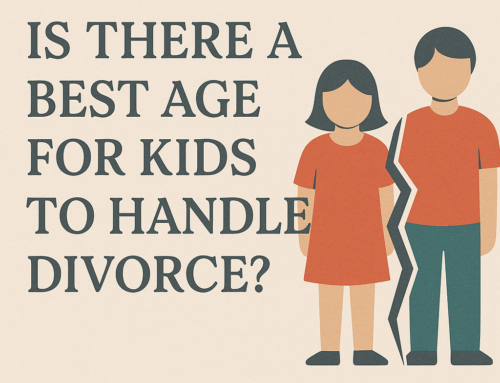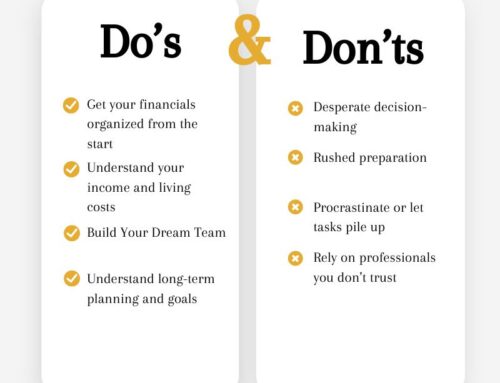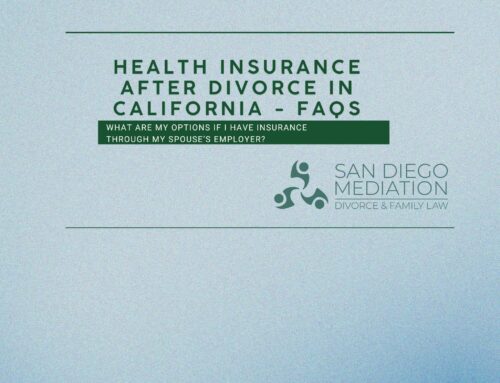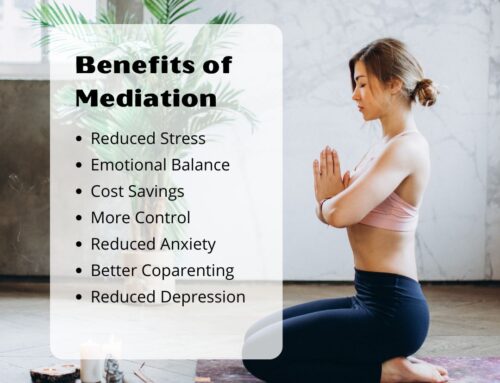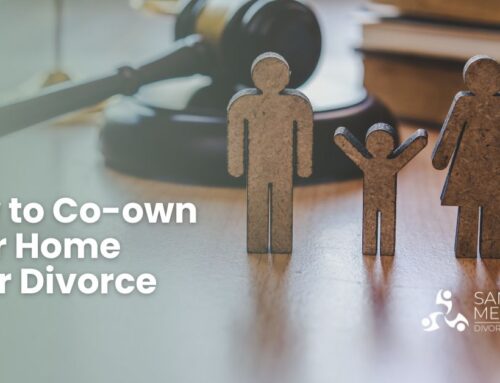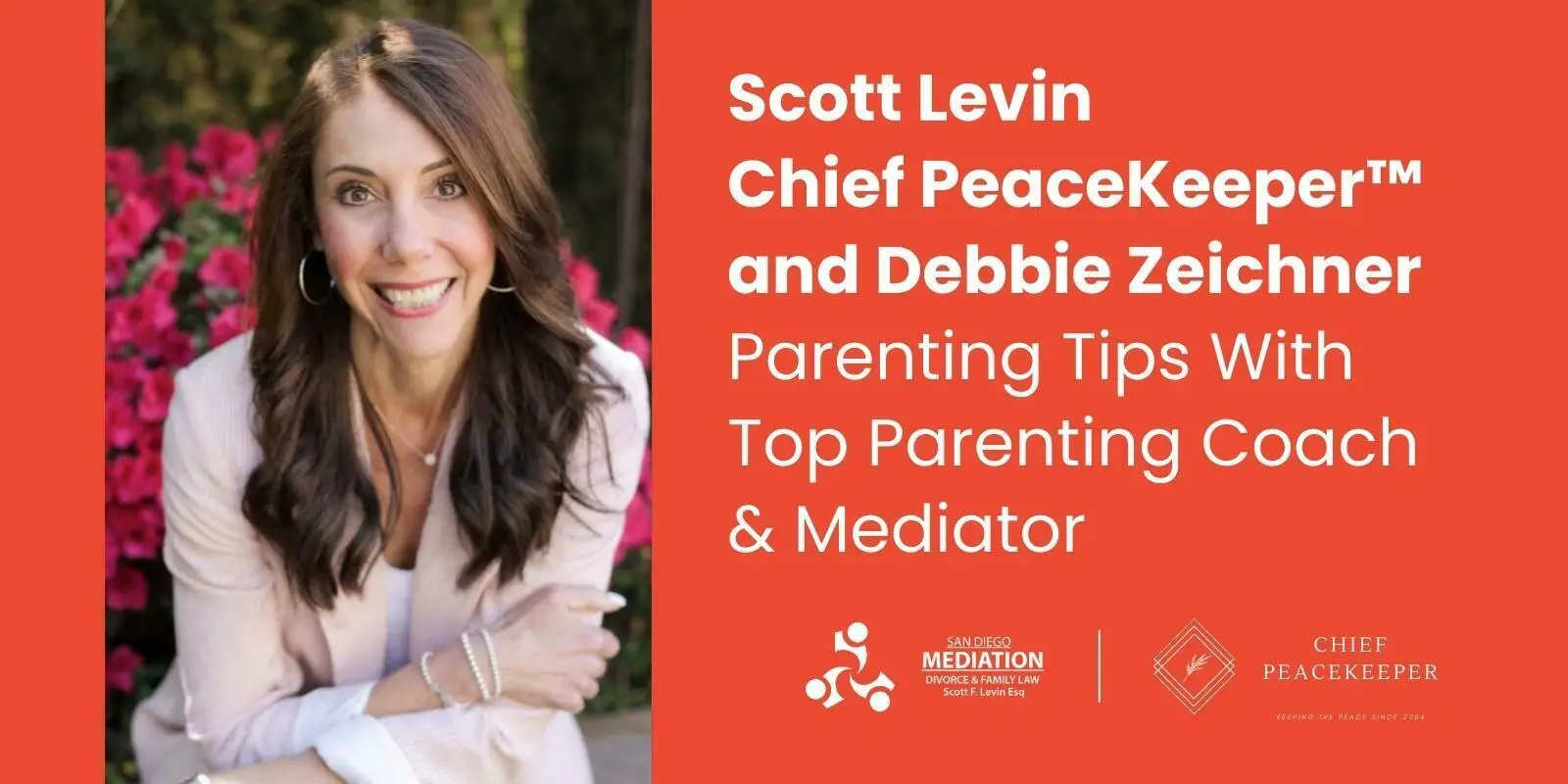
San Diego Divorce Expert Parenting Tips
Parenting coach extraordinaire, Debbie Zeichner, is here sharing some parenting topics to give viewers a brief introduction to the power of her abilities and philosophies. For parents in San Diego County including those in Carlsbad divorce mediation, staying aligned in the objective of protecting your children is absolutely critical.
Chief PeaceKeeper™ Scott Levin 0:01
Hi, everybody, my name is Scott Levin. I am a founding partner at San Diego Divorce Mediation and family law. And we are continuing our speaker series this afternoon with Debbie Zeichner. Thank you, Debbie. Yeah, you’re welcome. Thanks for having me. Of course, Debbie is the parent coach in Southern California. She’s a licensed clinical social worker. And she has some amazing upcoming free online seminars. under the title of becoming an empowered parent. And I just thought that actually starts tomorrow as we’re going to talk about So, Debbie, what can people expect to learn? How can they participate? Tell us a little more about that.
Debbie Zeichner 0:42
Yeah, absolutely. Well, again, thank you so much for having me, I’m so excited that we were able to connect, and I’m thrilled to be here and share anything that I can to support parents. Yeah. So I put together this online parenting series, which is free. And the series offers 29 parenting experts, some of the top parenting experts who are coming together to just share their gifts and their wisdom and their research base tips and tools and insights that are really, you know, offered to support parents and raising kids who are confident, who are kind and compassionate, and resilient, and emotionally healthy. And so much of what we’re going to be talking about, you know, the title is becoming an empowered parent, expert tools for embracing imperfection, building connection, and creating more peace and joy and your family. So we’re really talking about how we can start to reduce our own, you know, impatience and frustration and overwhelm, and guilt and shame and all of that, which oftentimes gets in the way of us being able to show up as the empowered parents that I think we’re truly meant to be. So each day, there will be two different interviews that are released, they’re all pre-recorded, so parents can watch them or listen to them at their leisure. But two interviews are released per day on a whole variety of topics. So I always say to parents, if you have a baby, if you have a young child, a preteen or teen, there’s something for you because our speakers are really covering just a wide range of topics, from tantrums to sibling rivalry to anti-racism, to raising mixed-race teens, to raising teens, to just all sorts of things, we’ve got a really amazing lineup that, that I’ve been able to put together. So I’m really proud and excited to be able to offer it.
Chief PeaceKeeper™ Scott Levin 2:31
And I’m excited, I signed up myself down, where can people watch it just so they can figure that out?
Debbie Zeichner 2:36
Yeah, absolutely. So it’s becoming an empowered parents.com. And there, you just sign up, and then you should receive an email, I’ve also included a free journal that goes along with it. So each speaker has their own page. So parents can, you know, kind of follow along, write down their just biggest takeaways, things that they want to try. So that goes along with it. And also, the other cool thing is that so many, not all, but many, many of the speakers are offering a free gift. So that’s really cool, too, is just a way for parents to be able to take advantage of so much of the knowledge and wisdom that is out there. And just get some support, especially with all that’s going on in our world right now. I just this was an opportunity to just offer some support for parents everywhere. So yeah, sure.
Chief PeaceKeeper™ Scott Levin 3:28
First of all, thank you for putting that together, it’s gonna be amazing. And, you know, we actually put my two kids or two of my older kids Sorry, I have three in camp because you know, we only go so long my wife works, I work, etc. And yesterday, we got a call from the camp saying that one of the counselors had been exposed to COVID and was taking a test. And so hit my one of my son’s whole week a cam was just a raised and that is just, I can imagine that’s going to happen. You know, what’s that saying? Like, we make plans and God laughs or whatever, like, that’s gonna happen all next school year. I mean, it’s gonna be a rocky road for all of us, with younger kids and kids in school, and so everyone needs the support and to, to educate ourselves. So,
Debbie Zeichner 4:22
yeah, there’s a lot of anxiety and a lot of uncertainty out there right now. And so I think, you know, now more than ever is the time for all of us to come together and try to figure out how we can be there for ourselves and how we can be there for each other. So
Chief PeaceKeeper™ Scott Levin 4:37
you know, I work mainly in the field of divorce and marriage and family loss. So that’s kind of what I do on a daily basis. But I really thought that something you said resonated with me the last time we spoke, so I don’t know if you remember and one of the reasons I want to have you on today was basically, you know, in divorce, it’s very hard for parents post-divorce. A lot of times to be on the same page. But you said something that gave that I’ve been repeating to my clients over and over and over. And I just want to know more about that, which is basically, you know, do parents have to be on the same page, whether they’re married or divorced?
Debbie Zeichner 5:18
Yeah, you know, I think it’s one of those really tricky things because I think we have these ideas in these expectations that, you know, parents have to be on the same page and be this united front. And while I think that’s certainly ideal, and while I think that’s certainly important, it’s not always realistic. And especially when parents are going through separation or divorce, oftentimes, they’re not able to be on the same page, right. And so I think we strive to be able to communicate with each other for, you know, I try to help parents be able to listen to each other. So as I know, you do understand where their children are coming from understand what their children’s needs are so that they can do their best to kind of meet somewhere in the middle. And at the same time, it’s being able to understand and know that, you know, households run a bit differently. And that’s okay. Right? Kids don’t need it to be exactly the same that moms and dads kids are very smart. They’re also very resilient, right? And they’re very quick to learn and understand what the rules are, right? This is how things are at mom’s house. This is how things are adapt house, right, and being able to adjust, which in so many ways is kind of how life is right. When we send our kids out into the world. They need to be able to adjust and adapt to a variety of situations. So when we’re able to win, they’re able to experience that with guidance, with support with at least one parent who’s able to recognize Yeah, I know, it’s really hard, you’re able to do that at dad’s house. And I’m not okay with that. And that’s really frustrating, right? That’s how we can help and guidance support our kids through that is recognizing that, you know, even though the rules aren’t the same sometimes that that transition can be confusing for kids. And so if we know that, and there’s at least as I said, one parent who’s able to support their child through that, that can be really helpful and create healthier outcomes for the child.
Chief PeaceKeeper™ Scott Levin 7:05
And so that I think that is such incredible advice. Because as I see it often with the issue of technology, and we all know that that’s not going to go away. So a lot of my clients, for example, will call me post-divorce and say, I need to have a mediation session. Because I hear I mean, this is I hear this all the time. I don’t want my son playing fortnight, and my ex lets them play fortnight. And so they’re like living two parallel lives. And when they come to my house, all they want to all the kind of do is sour on me, because I don’t let them play fortnight, what should we do? So how would you in that case, what would be some of your general suggestions, and then with an issue like that,
Debbie Zeichner 7:54
I think the first thing is just recognizing that we are only that we can control another person. As much as we want to dictate how things are going to be at the other’s home, we have zero control over that. All we have control over is how we choose to parent, the limits and boundaries that we choose to establish. That’s all we have to control. Right. And so once we can let go of this idea that we’re going to control and manage how our child’s life is and design our child’s life and where they are, and everything’s going to be exactly as we want. It’s impossible. It’s unrealistic, and it’s unreasonable. Right? So once we can let go of that, drop our agenda and focus on what is our control, which is how we choose to do things that our house that that tends to lessen kind of that intensity and anxiety, right, which then lessens the intensity and anxiety that our child experiences from us. Right? So we can certainly voice our concerns about Hey, listen, as I know, you really, you know, are allowing a lot of video games at your house. I’m not allowing them in my house. And here’s why. Here’s what I found. Here’s what the research says the ex is going to do with the ex is going to do, right. So I think we can do our best to explain the reasons why. And when our child comes back to our house expecting you know, endless hours of the fortnight, that’s when we can really connect with our children. So I know that is really frustrating because I know you get to watch fortnight at your mom’s house or I know you get to watch fortnight at your dad’s house and hear you know, I’m not okay with that. So that’s hard, and I hear you so let’s see how we can make this work for both of us. Or, you know, even just validating how our child feels because oftentimes when our child comes to us with a complaint, you know, you’re not doing this dad lets me do this. You know, oftentimes, it’s natural to kind of that defensiveness rises in us, right? And we start to go into logic. Well, this is why and I can’t believe is letting you do that, right. And we kind of get into this like blame game, which is only you know, hurtful for the child and actually doesn’t allow the child to feel fully heard because really, what they’re saying is it’s not fair right? Which gives us the opportunity to say, You know what? You’re right. It’s not fair. And I know that that must be really hard. You wish you could do that more. You wish you could do that more here. And let’s figure out what you can do. Right? So the vote, right, so, so then the child, so the child doesn’t get exactly what they want. But they get a chance that they get a parent who at least sees them, hears them and understands where they’re coming from. And when they feel seen and heard and understood and accepted, there’s less need to battle there’s less need to fight. Right. So yeah, they might be disappointed. I would say, Yeah, I know. I get it.
Chief PeaceKeeper™ Scott Levin 10:37
Well, you know what? I think everyone watching this now knows why she is the parenting coach in Southern California. And, and I know that we could go on and on, but I actually just want I would love our viewers to tune into the becoming an empowered parent series that starts tomorrow. Tuesday, July. What does that nine, July 7, seven, sorry? And, and I mean, those answers were so incredible. And I thank you so much for just spending a couple of minutes with us. I know you’re busy. And I hope that we can continue this conversation again soon. And we’ll hit on a whole bunch of other fun topics in the meantime. So thank you so much. Thank you again. Bye, everyone.
Transcribed by https://otter.ai









